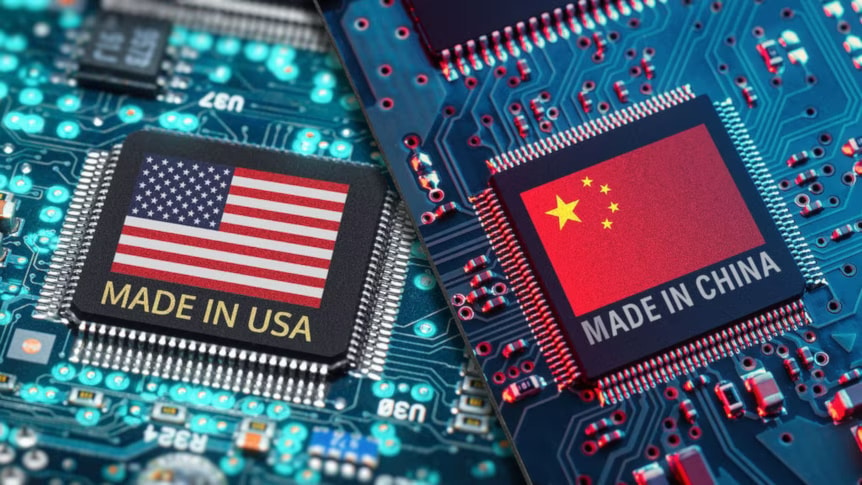Intel, AMD stocks sink after Chinese gov. turns inward for chips
The Chinese government is set to start replacing US-made semiconductors and servers with ones produced by Chinese firms.
-

An illustration of the US and Chinese flags printed on two semiconductors installed on different motherboards in September 2022 (Social media)
Shares of chip giants Intel and Advanced Micro Devices AMD dropped in pre-market trading on Monday after China introduced new guidelines to start using domestic semiconductors and servers in government computers as an alternative to ones produced by US companies, the Financial Times reported.
The new policy was revealed by the Finance Ministry and the Ministry of Industry and Information Technology end of last December.
Read more: Apple's iPhone 15 shows US does not understand own tech war on China
US-made softwares will also be phased out and replaced, the newspaper added. But for now, there will remain some felxibilty margin for government establishments to purchase foreign processors and servers, it said, citing anonymous Chinese officials.
Intel experienced a 4.1% decline, while AMD slipped 3.2%, as investors were concerned about the impact the new regulation will have on the comapanies' sales.
In October 2022, the US Department of Commerce introduced sanctions on China, putting hurdles in Beijing's way to buy or develop advanced semiconductors. This also included forcing other countries to restrict tech trade with China, particulary semiconductors.
Earlier this month, the US Commerce Department prohibited AMD from supplying China with an AI chip specifically produced to fit the needs of the Chinese market.
Additionally, a Bloomberg report published last week indicated that the United States is contemplating the blacklisting of several Chinese chips companies associated with Huawei Technologies, further intensifying unilateral measures to block China from surpassing the US in terms of scientific and tech advancments.
Tech firms had already warned that Washington's tech war against China could end up backfiring and fuel the Chinese drive to independently develop their own IT hardware and solutions, while US companies would have been deprived of large profits from the largest chip market in the world.
In May, The Wall Street Journal reported that American sanctions on Chinese IT businesses have caused them to expand research to build artificial intelligence (AI) without relying on cutting-edge US semiconductors.
According to the report, Chinese firms searched for strategies that might enable them to employ fewer or less powerful chips to achieve high-level AI performance.

 2 Min Read
2 Min Read








